What connects Mortal Kombat, Naruto, and Japanese farmers? – Let's check out a deadly kunai
We first have met under the DOS...
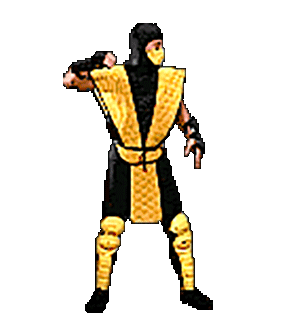
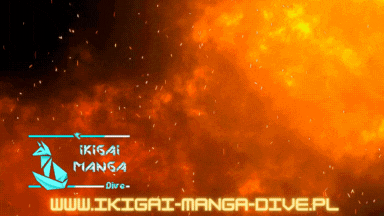
In this article, we invite you, dear readers, to delve into the history of kunai-type weapons – to simply know more about this slice of reality – both from the perspective of Japan's history and bloody video games. We will uncover not only its historical roots and evolution but also how this ancient tool has become an integral element of pop culture, largely thanks to Scorpion from Mortal Kombat. We will combine historical knowledge with a passion for video games to show how ancient traditions influence our contemporary entertainment and culture. Prepare for a journey that connects the past with the present, tradition with modernity, and feudal Japan with fantasy fatalities.
Kunai – What is it and where does it come from?
The kunai, modest in form yet rich in history, is a word that plays its role in the Japanese lexicon of war and agriculture. The origin of this term goes back hundreds of years, and its meaning has evolved greatly over the centuries.
 Etymology
Etymology
The word “kunai” (苦無) consists of two kanji: “ku” (苦), meaning suffering, pain, or difficulty, and “nai” (無), meaning lack or non-existence. Although the etymology may suggest a negative context, in practice, kunai represents a tool of survival and adaptation, capable of turning difficulties into advantages. In the agricultural context, where the kunai had its beginnings, the name may reflect the hardships of farm work, but at the same time, the indispensability of the tool in the daily struggle for survival.
 Humble Beginnings
Humble Beginnings
The kunai began its life as an agricultural tool, used for digging and planting. Its simple, yet effective design meant that over time, it became a versatile instrument in the hands of those who could appreciate its potential beyond agriculture. In feudal Japan, where social status often defined access to weapons, the kunai became a valuable resource for those lower down the social ladder.
Shadow warriors, ninjas, adopted the kunai not only as a weapon but as a universal tool - for climbing, as a chisel, or even an improvised knife. 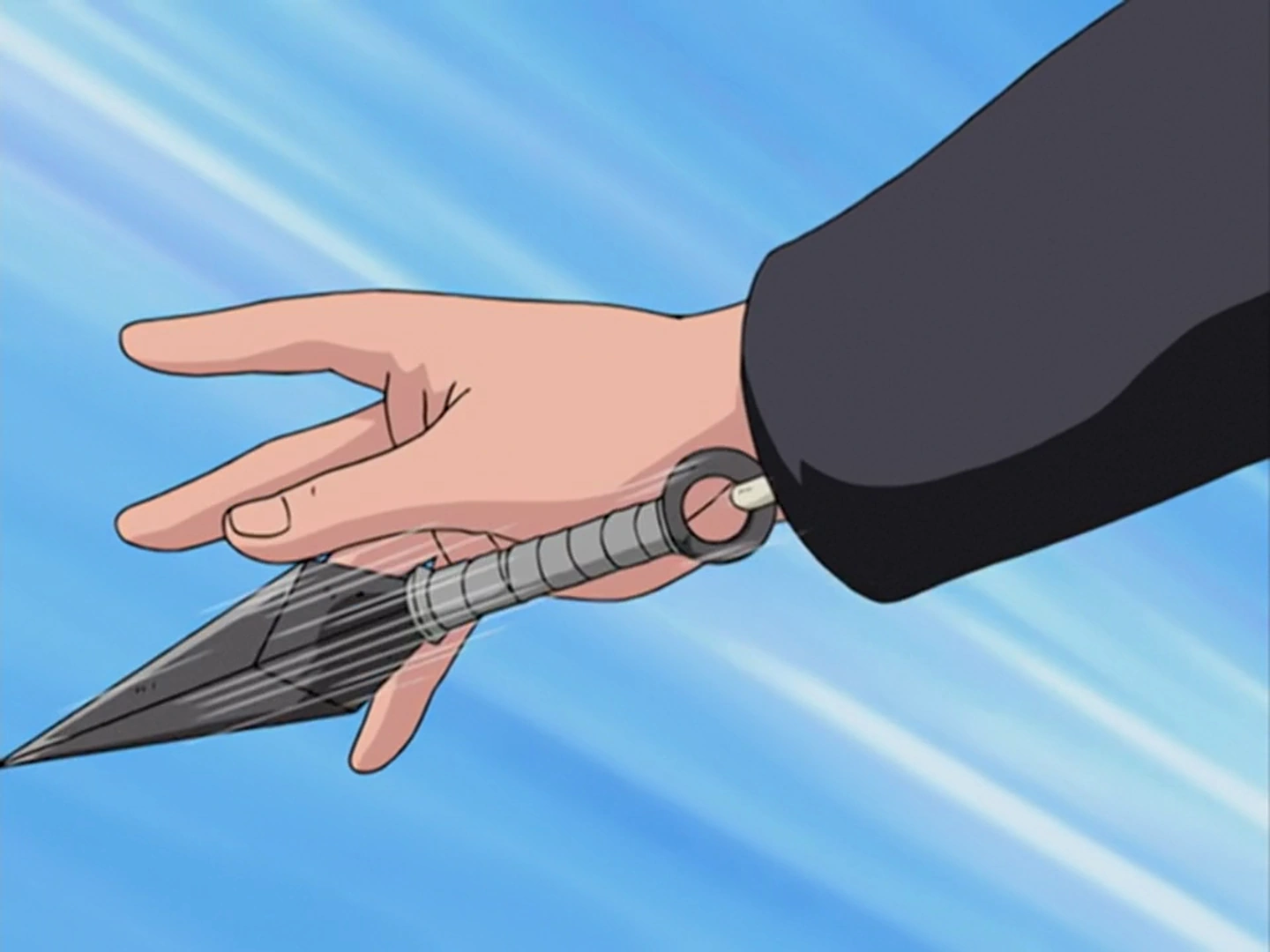
 Use of Kunai in Various Ways
Use of Kunai in Various Ways
The kunai, originally an agricultural tool, found its place in various aspects of life in feudal Japan, permeating through social layers from farmers to samurais and, most notably, to ninjas. Its versatility and accessibility made it an object of innovation in the hands of those who sought both simplicity and efficiency in their craft.

▫ Climbing: By attaching ropes to kunai, ninjas could use them as anchors for climbing or crossing obstacles (and this is likely the inspiration that the creators of Mortal Kombat later used in creating the character of Scorpion)
▫ Thrown Weapon: Though less commonly used in this way, kunai could serve as a thrown weapon in situations where direct contact was inadvisable.
▫ Multifunctional Tool: Opening locks, detecting traps, and even carving signs in stone and wood – the kunai was a versatile tool that could serve various purposes depending on the needs.
 Scorpion...
Scorpion...
Scorpion, whose real name is Hanzo Hasashi, is one of the most iconic characters in the Mortal Kombat series of games. As a specter from the netherworld, he seeks revenge for the death of his family and clan members, murdered by Sub-Zero of the Lin Kuei clan. This tale of vengeance is a central theme for Scorpion's character, recurring throughout many games in the series.
In Mortal Kombat, the kunai has become Scorpion's signature weapon. Over the years, his kunai has undergone several evolutions in terms of design and functionality:
▫ Beginnings: In the early Mortal Kombat games, Scorpion's kunai was depicted as a simple metal spike at the end of a chain, which the warrior would throw at his opponent to pull them in for a combination of attacks. It resembled the simplest designs of kunai known from feudal Japan when the kunai was just being adapted from an agricultural tool to the art of ninjutsu.
▫ Mortal Kombat X and XI: In newer iterations of the series, the kunai and its usage become more diversified. Scorpion uses the kunai not only to pull opponents closer but also as a thrown weapon, and even combines it with chains in spectacular attack combinations.
 ▫ Film adaptations: In the Mortal Kombat movies of the 90s, Scorpion's kunai received a unique twist, becoming a living, snake-like creature that emerged from Scorpion's hand. It is difficult, therefore, to say that Scorpion used a kunai in the movie in the traditional sense.
▫ Film adaptations: In the Mortal Kombat movies of the 90s, Scorpion's kunai received a unique twist, becoming a living, snake-like creature that emerged from Scorpion's hand. It is difficult, therefore, to say that Scorpion used a kunai in the movie in the traditional sense.
▫ Mortal Kombat (2021): The latest film adaptation presents Scorpion's kunai more in line with its original conception in the games, as a metal spike on a chain, though with added personal significance for the character.

The Significance of Kunai in and out of the MK World
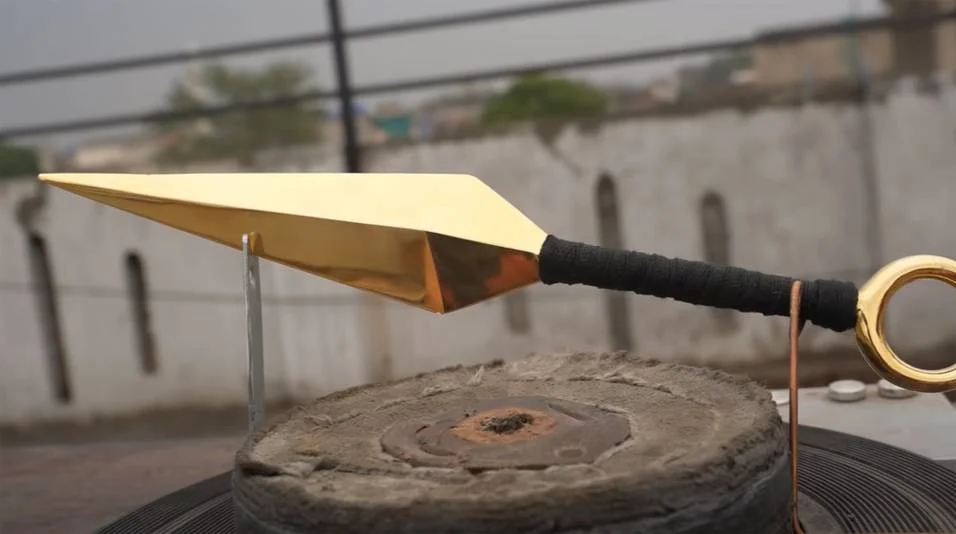
The kunai appears in pop culture, including in many mangas and anime, often playing an important role in the arsenal of ninja characters or warriors. Here are a few examples:
▫ "Naruto": Probably the most famous use of kunai in pop culture after Mortal Kombat. In this anime, kunai are everyday tools and weapons for ninjas, used for fighting, defense, and as multifunctional tools. Characters often modify them, adding paper bombs or using them to direct chakra techniques.
 ▫ "Boruto: Naruto Next Generations": A continuation of "Naruto," where the tradition of using kunai by ninjas is continued by a new generation.
▫ "Boruto: Naruto Next Generations": A continuation of "Naruto," where the tradition of using kunai by ninjas is continued by a new generation.
 ▫ "Ninja Scroll": A classic anime where kunai and other traditional Japanese weapons are used by ninjas in numerous fight scenes, showcasing their diverse application in combat.
▫ "Ninja Scroll": A classic anime where kunai and other traditional Japanese weapons are used by ninjas in numerous fight scenes, showcasing their diverse application in combat.
▫ "Basilisk": A manga and anime series where characters, members of warring ninja clans, use kunai in their confrontations, highlighting the historical significance of this weapon in ninja culture.
 Evolution of Perception
Evolution of Perception
Kunai, though commonly associated with ninjas and their mysterious world, harbors much more history and applications than might seem at first glance. One interesting fact is that although today kunai is mainly associated with shadow warriors, in its beginnings, it was a tool used by a wide range of people, including farmers. Its simple, yet durable design made it indispensable in daily tasks, from agriculture to construction, demonstrating its versatility and practicality.
Additionally, contrary to popular belief and pop culture representations, the kunai was not primarily a thrown weapon. Its weight and shape were better suited for close-range combat and tasks such as forging or chiseling, making it a much more versatile tool than it might appear. The history of kunai is thus an example of how objects can change their meaning and perception depending on the cultural context and era in which they are used.
The contemporary appearance of kunai, both in the real world and in fiction, testifies to the remarkable ability of human imagination to transform simple tools into objects of deep cultural and emotional significance. From humble beginnings as an agricultural tool, through an invaluable element of the ninja arsenal, to an iconic weapon in the Mortal Kombat universe, the kunai has traveled a long journey, achieving legendary status. This journey does not just show the evolution of a tool, but the evolution of how we perceive such a tool through history and demonstrates how the past inspires contemporary entertainment and art.
"Strong Japanese Women"
see book by the author
of the page
未開 ソビエライ
An enthusiast of Asian culture with a deep appreciation for the diverse philosophies of the world. By education, a psychologist and philologist specializing in Korean studies. At heart, a programmer (primarily for Android) and a passionate technology enthusiast, as well as a practitioner of Zen and mono no aware. In moments of tranquility, adheres to a disciplined lifestyle, firmly believing that perseverance, continuous personal growth, and dedication to one's passions are the wisest paths in life. Author of the book "Strong Women of Japan" (>>see more)
Personal motto:
"The most powerful force in the universe is compound interest." - Albert Einstein (probably)
Mike Soray
(aka Michał Sobieraj)
未開 ソビエライ
An enthusiast of Asian culture with a deep appreciation for the diverse philosophies of the world. By education, a psychologist and philologist specializing in Korean studies. At heart, a programmer (primarily for Android) and a passionate technology enthusiast, as well as a practitioner of Zen and mono no aware. In moments of tranquility, adheres to a disciplined lifestyle, firmly believing that perseverance, continuous personal growth, and dedication to one's passions are the wisest paths in life. Author of the book "Strong Women of Japan" (>>see more)
Personal motto:
"The most powerful force in the universe is compound interest." - Albert Einstein (probably)
Mike Soray
(aka Michał Sobieraj)
Write us...
Ciechanów, Polska
dr.imyon@gmail.com
___________________
inari.smart
Would you like to share your thoughts or feedback about our website or app? Leave us a message, and we’ll get back to you quickly. We value your perspective!

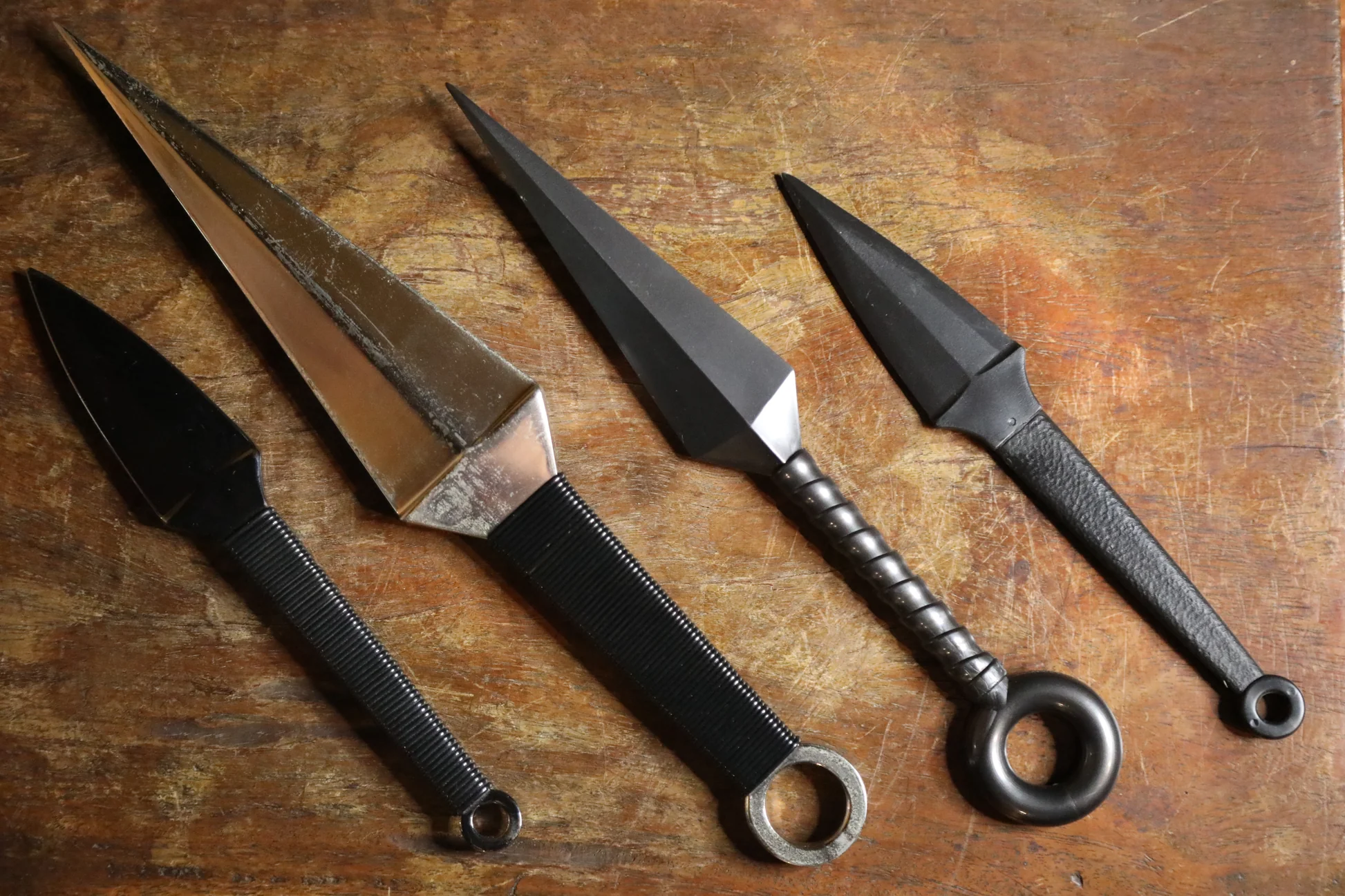
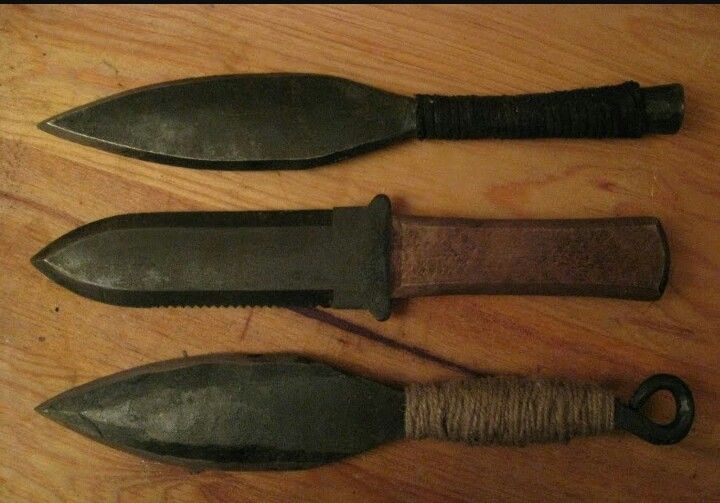 Etymology
Etymology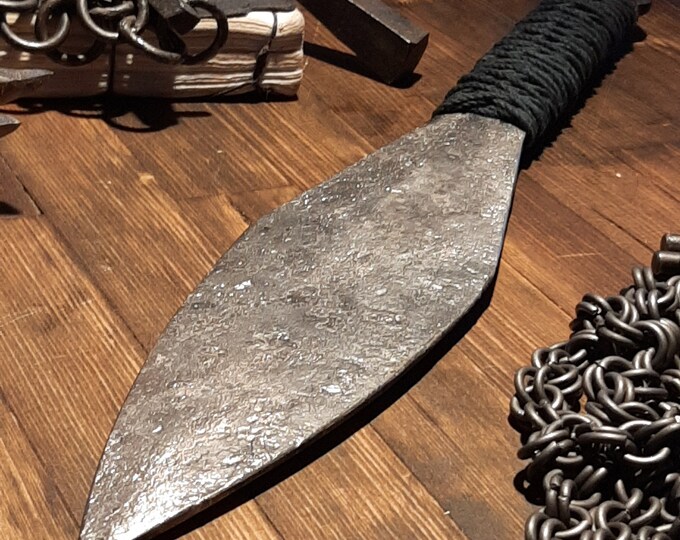 Humble Beginnings
Humble Beginnings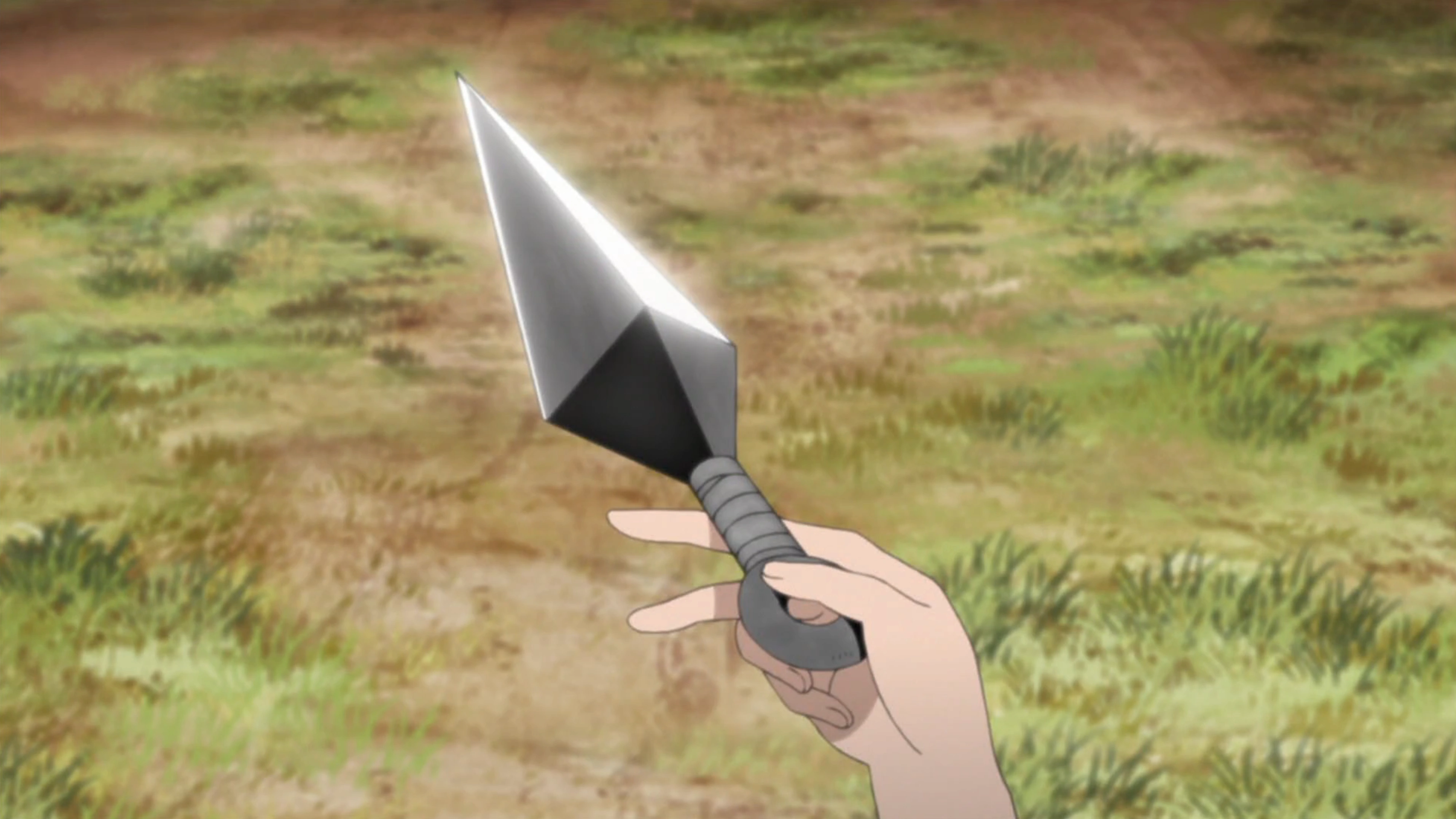 Use of Kunai in Various Ways
Use of Kunai in Various Ways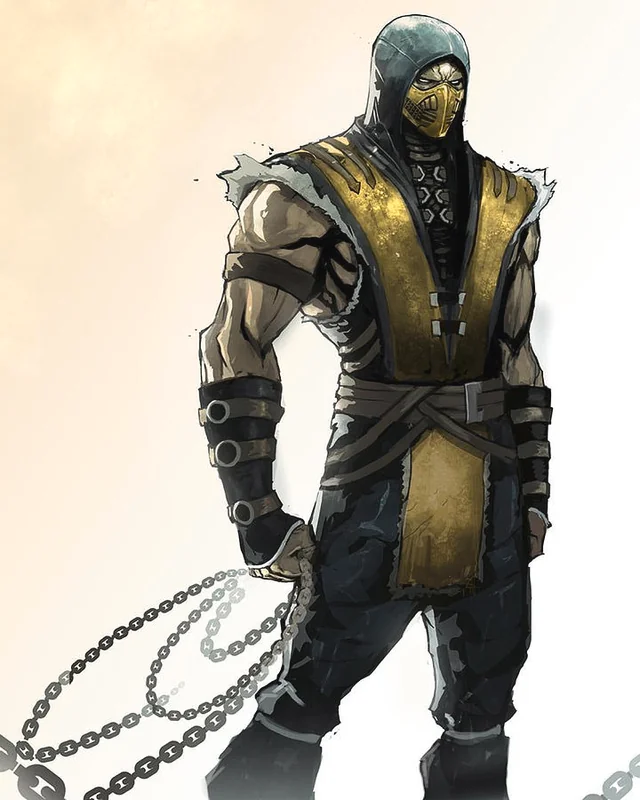 Scorpion...
Scorpion...
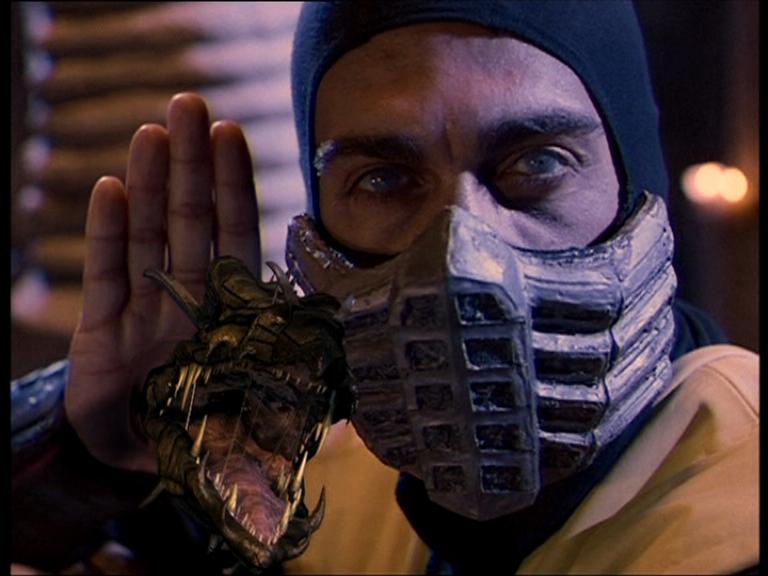 ▫ Film adaptations: In the Mortal Kombat movies of the 90s, Scorpion's kunai received a unique twist, becoming a living, snake-like creature that emerged from Scorpion's hand. It is difficult, therefore, to say that Scorpion used a kunai in the movie in the traditional sense.
▫ Film adaptations: In the Mortal Kombat movies of the 90s, Scorpion's kunai received a unique twist, becoming a living, snake-like creature that emerged from Scorpion's hand. It is difficult, therefore, to say that Scorpion used a kunai in the movie in the traditional sense.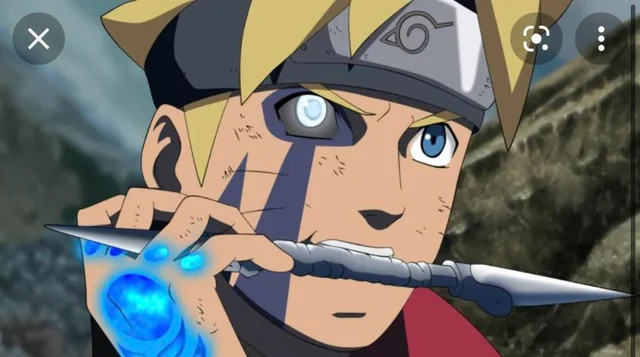 ▫ "Boruto: Naruto Next Generations": A continuation of "Naruto," where the tradition of using kunai by ninjas is continued by a new generation.
▫ "Boruto: Naruto Next Generations": A continuation of "Naruto," where the tradition of using kunai by ninjas is continued by a new generation.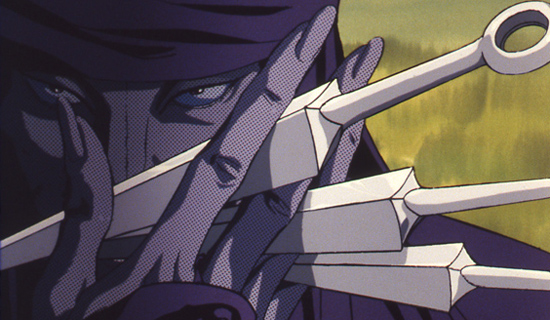 ▫ "Ninja Scroll": A classic anime where kunai and other traditional Japanese weapons are used by ninjas in numerous fight scenes, showcasing their diverse application in combat.
▫ "Ninja Scroll": A classic anime where kunai and other traditional Japanese weapons are used by ninjas in numerous fight scenes, showcasing their diverse application in combat.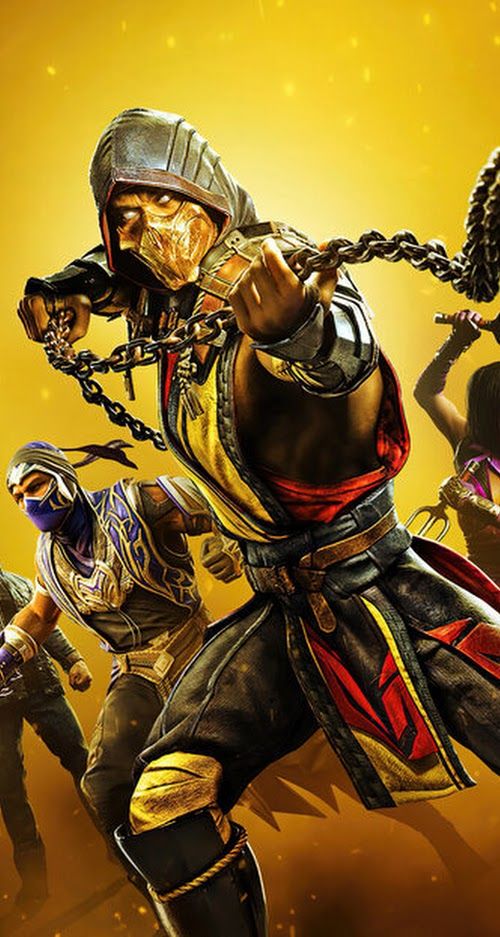 Evolution of Perception
Evolution of Perception

